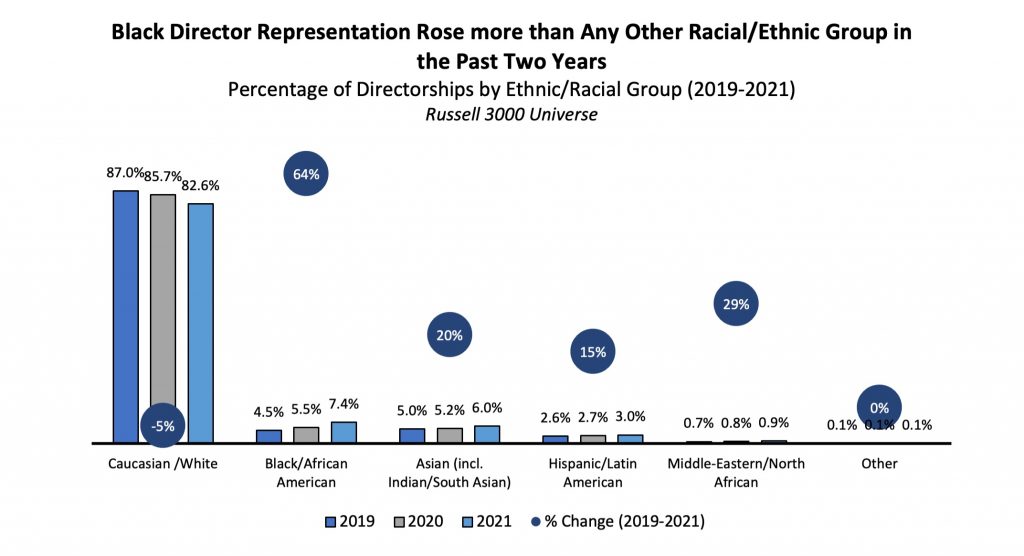Below is an excerpt from ISS Corporate Solution’s recently released publication “Board and Workforce Racial Diversity”. The full paper is available for download here from the ICS online library.
During Black History Month in February each year, the United States and Canada acknowledge the accomplishments and contributions of the African diaspora. This observance also serves as an opportunity to reflect on additional work to be done to achieve further inclusion and social equity.
This data snapshot report reviews developments in disclosure among U.S. corporations that signal levels of racial and ethnic diversity and inclusivity at boards, executive teams, and the general workforce. The review of relevant trends also includes a special section on supply chain diversity.
Key Takeaways:
- Racial diversity on U.S. corporate boards has increased but remains relatively limited. Most U.S. corporations include at least one non-Caucasian director on their boards. Despite a recent increase in the representation of diverse directors, non-Caucasian directors hold approximately only 17 percent of directorships in the Russell 3000.
- Black directors saw significant growth in board representation. The largest growth in non-White representation was seen among Black/African American directors, increasing from 4.5 percent to 7.4 percent of directorships held in the Russell 3000 from 2019 to 2021.
- Disclosure levels of racial diversity in executive leadership and the workforce remain low. Disclosure of racial diversity in the executive ranks and the general workforce has become relatively common among S&P 500 companies but remains relatively scarce among smaller firms, with approximately less than one-third of non-S&P 500 firms in the Russell 3000 disclosing such information.
- Racial diversity in top executive roles has seen relatively slow growth. Approximately 9 in 10 CEOs of Russell 3000 firms self-identify as White or Caucasian based on self-identification data of CEOs who sit on the boards of their own companies. The presence of diverse individuals in CEO roles has increased but not changed significantly in the past two years.
- Stakeholder interest on racial diversity is increasing. The topic of racial diversity across all levels of the organization (board, executive leadership, and the entire workforce) has gained increased attention from investors and other key stakeholders, as evidenced by multiple shareholder resolution campaigns in the past three years.
- Supplier diversity gains tractions, with potential benefits for buyers and suppliers. Almost two-thirds of S&P 500 companies disclose policies to promote economic inclusion of suppliers.

By Kosmas Papadopoulos, CFA, Head of Sustainability Advisory – Americas, ISS Corporate Solutions. Paul Hodgson, Senior Editor, ISS Corporate Solutions with Michelle Albanese, Senior Sustainability Advisor, ISS Corporate Solutions.




